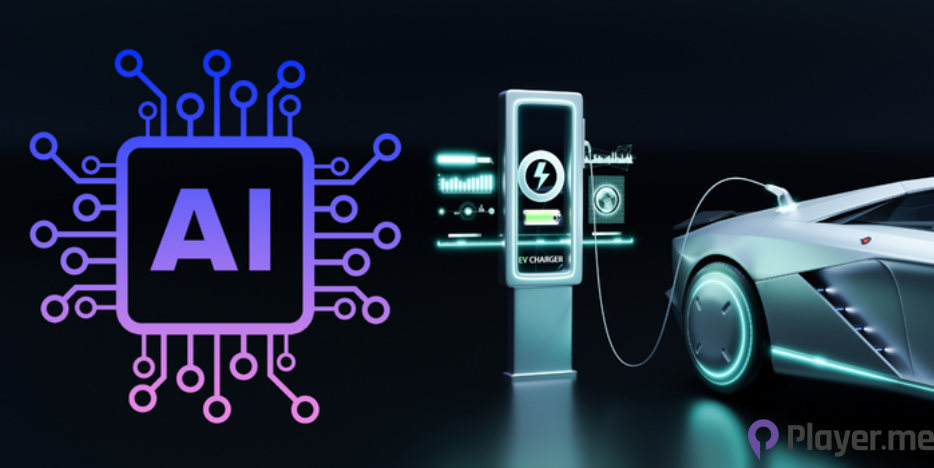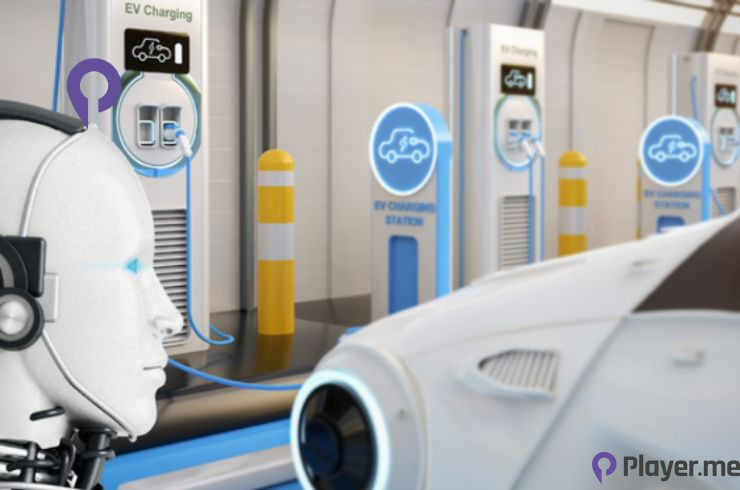Electric Vehicle (EV) batteries are essential components that determine the performance and durability of electric cars. Despite their significance, developing efficient and long-lasting batteries is a complex and challenging process. Fortunately, generative Artificial Intelligence (AI) is coming to the rescue.
In recent years, researchers and engineers have started using AI tools to accelerate battery research and produce better batteries. This blog will provide an overview of the use of generative AI in EV battery development, the challenges in their development, and how generative AI is revolutionising EV battery development. Let’s dive in.
Read More: Drive Toward Tomorrow: EV Revolution Surges Ahead, But Roadblocks Remain!
How Generative AI Is Revolutionising EV Battery Development

The EV market heavily relies on innovative battery technologies, and generative AI has emerged as a powerful tool in accelerating the development of these crucial components. By leveraging complex algorithms, generative AI can swiftly sift through an array of material combinations, enabling the rapid identification of promising solutions without the constraints of traditional trial-and-error methods.
Notably, this approach not only expedites the discovery process but also enhances the comprehension of material interactions. Researchers can gain profound insights into the intricate behaviours of various materials, facilitating the identification of crucial parameters and informed decision-making for optimised battery design.
Furthermore, the application of generative AI has significantly contributed to improving battery performance and durability. With its capability to pinpoint materials that boost longevity, mitigate degradation, and reduce overall weight, the technology promotes the creation of more efficient, long-lasting, and environmentally sustainable batteries, consequently fueling the advancement of the EV industry.
Examples of Generative AI in EV Battery Development

Generative AI is already making its way into the EV battery industry, with several companies partnering with startups to accelerate their research and development efforts. Avionics, for instance, has partnered with Porsche’s battery manufacturing subsidiary Cellforce Group to deliver better batteries in record time.
Similarly, Toyota is using AI for rapid design and testing, allowing them to innovate batteries with greater efficiency and accuracy. Tesla, on the other hand, is exploring the use of AI to optimise battery life, thereby reducing the cost of ownership for consumers.
These examples illustrate how generative AI is revolutionising EV battery development, allowing companies to streamline their operations and produce batteries that are more efficient, sustainable, and affordable. As research in this field progresses, more applications of generative AI in battery development are likely to emerge, paving the way for a brighter, more sustainable future.
Future of Generative AI in EV Battery Development

Generative AI has the potential to revolutionise the EV industry by reducing costs and time for research and development. This technology allows researchers to analyse vast amounts of data and quickly identify optimal battery compositions, leading to more efficient and sustainable batteries. As generative AI becomes more advanced, there is potential for widespread adoption across the EV industry.
While the benefits of generative AI are clear, there are also several challenges and limitations. A lack of data and knowledge for AI to learn from can hinder its effectiveness, and there are ethical concerns surrounding AI’s role in engineering. Additionally, battery development is inherently complex, and generative AI can only assist to a certain extent.
Despite these challenges, the potential benefits of generative AI in EV battery development cannot be ignored. As the technology continues to advance, it has the power to transform the EV industry and accelerate the shift towards cleaner, more sustainable transportation.
Also Read: 5 Groundbreaking Benefits of Using Shield AI in Defence and Security
Challenges of Generative AI Creeping Into EV Battery Development
As with any new technology, generative AI in EV battery development comes with its fair share of challenges and limitations. One such limitation is the lack of data and knowledge for AI to learn from, which could hinder its ability to make accurate predictions and recommendations. Also read https://player.me/u-s-voice-actors-warn-of-ai-threat-at-comic-con/ to know about the new AI threats that have been going around for a while now.
Additionally, there are ethical concerns about AI’s role in engineering, such as the reduction of human input or biases in decision-making. Lastly, the complexity of battery development and the need for multidisciplinary expertise could pose a significant challenge to AI’s ability to deliver innovative solutions.
Despite these challenges, the potential benefits of generative AI in battery research and development are immense. As such, it will be essential to strike a delicate balance between the use of AI and human expertise to ensure safe, efficient, and sustainable battery solutions. Also, visit here to find all the juicy and latest tech news articles.
Summing Up
The potential of generative AI in EV battery development is immense. It can significantly reduce costs and time for research and development, leading to more efficient and sustainable batteries with potential widespread adoption. As the EV industry keeps growing, the future impact of generative AI in battery development could bring about remarkable advancements in the field.
Frequently Asked Questions
What Is the Role of Generative AI in EV Battery Development?
Generative AI is revolutionising EV battery development by accelerating the discovery of new and viable combinations of materials. With its ability to rapidly screen through millions of potential combinations, generative AI has reduced the limitations of traditional methods that require extensive trial and error. Moreover, it has improved our understanding of the behaviour of different materials, leading to the production of more efficient, longer lasting, and sustainable batteries.
What Are Some Implications of Generative AI in EV Battery Development?
Generative AI has the potential to reduce research and development costs, produce better and more sustainable batteries, and potentially lead to widespread adoption. With its numerous advantages, several startups are exploring its possibilities in the EV market, and generated AI is bound to play a significant role in the future.
What Are Some Challenges and Limitations of Generative AI in EV Battery Development?
The complexity of battery development, lack of data and knowledge for AI to learn from, and ethical concerns regarding AI’s role in engineering are some of the challenges that researchers face with generative AI. Despite these challenges, generative AI has shown promise and is expected to play an essential role in developing the next generation of EV batteries.





